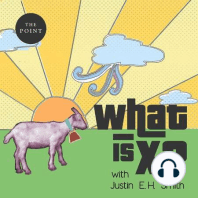62 min listen
What Is Authorship? | Jonathan Egid
FromWhat Is X?
ratings:
Length:
70 minutes
Released:
Jun 14, 2022
Format:
Podcast episode
Description
What counts as authorship? Why does it matter? Should we stop putting our names on what we write and sign off instead, as early scribes preferred to do, as nothing more than humble servants of God? In this episode, Justin E.H. Smith thinks through these questions with Jonathan Egid, writer and doctoral student in comparative literature at King’s College London. The two consider the Hatäta Walda Heywat—which, depending on who you ask, is either a seventeenth-century philosophical treatise by little-known Ethiopian philosopher Zera Yacob, or a forgery composed in the nineteenth century by the Italian monk who claimed to have discovered it. Was Zera Yacob a real person? If the monk did write the Hatäta, why would he choose to renounce his authorship, given how much work it would have taken? Smith and Egid discuss the motives behind self-effacement and self-promotion, the postmodernist idea of the death of the author, and why we keep reading Homer when we don’t know if he even existed. What does this all mean, they ask, for issues of representation and efforts to meaningfully diversify the philosophical canon?
Released:
Jun 14, 2022
Format:
Podcast episode
Titles in the series (25)
What Are Dreams? | Matthew Spellberg by What Is X?
